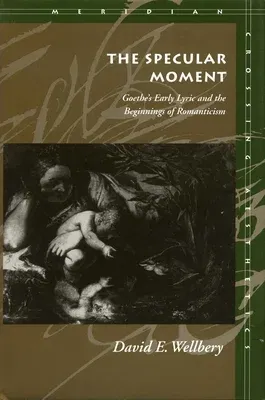David E Wellbery
(Author)The Specular Moment: Goethe's Early Lyric and the Beginnings of RomanticismPaperback, 1 October 1996

Qty
1
Turbo
Ships in 2 - 3 days
In Stock
Free Delivery
Cash on Delivery
15 Days
Free Returns
Secure Checkout

Part of Series
Meridian: Crossing Aesthetics
Part of Series
Meridian
Print Length
484 pages
Language
English
Publisher
Stanford University Press
Date Published
1 Oct 1996
ISBN-10
0804726949
ISBN-13
9780804726948
Description
Product Details
Author:
Book Format:
Paperback
Country of Origin:
US
Date Published:
1 October 1996
Dimensions:
22.96 x
15.39 x
2.92 cm
ISBN-10:
0804726949
ISBN-13:
9780804726948
Language:
English
Location:
Stanford, CA
Pages:
484
Publisher:
Weight:
707.6 gm